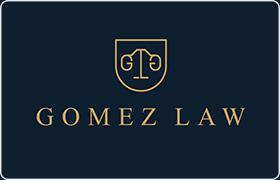Aliso Viejo Eminent Domain Lawyer, California
Sponsored Law Firm
-
 x
x

Click For More Info:
-
Gomez Law, APC
3250 Wilshire Blvd Suite 1901 Los Angeles, CA 90010» view mapReal Estate Dedication. Compassion. Trust.
Whether you are looking to purchase a house or commercial property or in the process of probate, we are here to provide the legal support you need to help you move forward.
800-901-4291
Matthew P. Snowdon
Construction, Land Use & Zoning, Employment, Eminent Domain
Status: In Good Standing
FREE CONSULTATION
CONTACTChristopher D. Peterson
Eminent Domain, Litigation, Environmental Law, Business
Status: In Good Standing Licensed: 10 Years
Patrick Joseph D'Arcy
Eminent Domain, Litigation, Corporate, Credit & Debt
Status: In Good Standing Licensed: 17 Years
Bradford Beau Kuhn
Eminent Domain, Real Estate, Litigation, Business
Status: In Good Standing Licensed: 18 Years
Kevin Andrew Day
Eminent Domain, Environmental Law, Contract, Business
Status: In Good Standing Licensed: 22 Years
James A. McQueen
Eminent Domain, Construction, Complex Litigation, Corporate
Status: In Good Standing Licensed: 40 Years
 Mark Gomez Los Angeles, CA
Mark Gomez Los Angeles, CA Practice AreasExpertise
Practice AreasExpertise
